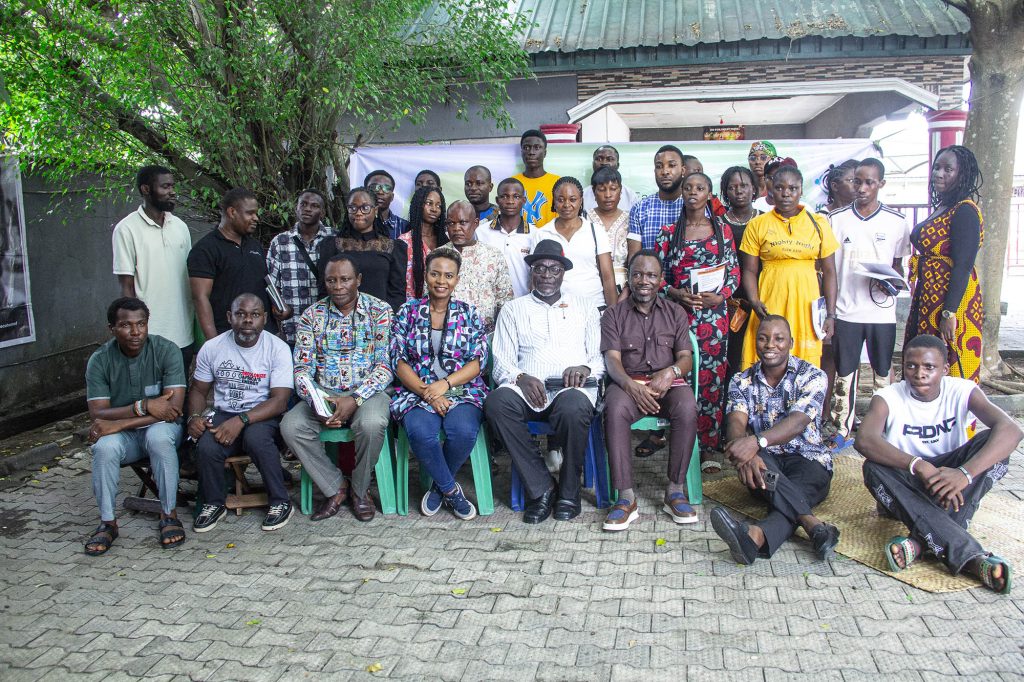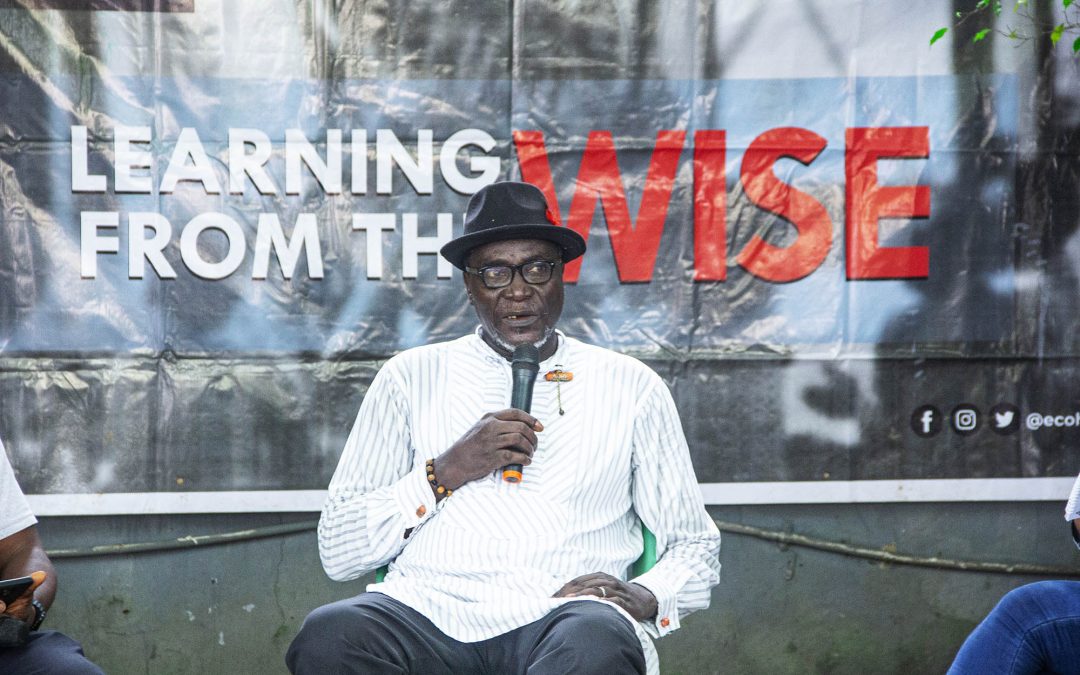Niger Delta – a region blessed with biodiversity and natural re-sources, the most fertile and greenest part of Nigeria – has over the years since the discovery of oil in commercial quantity and production experienced what would be described as retrogression. The oil and gas that was supposedly meant to bring in progress, wealth, and improvement of livelihood to the people has instead brought hardship, despoliation, pain, injustice, violence, and destruction of livelihoods to the people in the region. The Director of HOMEF, Nnimmo Bassey captured the Niger Delta situation with oil and gas in one of his poems ‘we thought it was oil, but it was blood’. The poem explains, in simple terms, the horror and pain that the communities bear because of oil.
From cases reported as sabotage to pipelines to conscious dumping of oil waste products into water bodies in the region, the region has known pollution. There have been cases of abandonment or poor decommissioning of used oil and gas facilities leading to spillages, illegal refineries scattered around the oil-bearing communities, accidents to vessels carrying oil products and the ever-glaring gas flares burning in the region for years, the region has experienced levels upon levels of pollution. Communities in the region have been ripped. Their waters, lands and air have been polluted and sources of livelihoods lost.
While the governments and corporations in alliance with them try to cover up and project the exploration of oil and gas in the region as the economic silver bullet, silencing the ills this venture has brought, some concerned citizens took it upon themselves to monitor and shine light on the ills and impacts of crude oil exploitation and exploration in the region. Comrade Morris Alagoa has been one of those who has been in the forefront of environmental monitoring and advocacy over the years. His over three decades of experience in the monitoring, reporting and advocacy in the region earned him a recognition by HOMEF as a wisdom holder in this field which was the reason he was invited on April 11, 2024 to share his experiences, wisdom and lessons learnt over the years with HOMEF’s eco-defenders, new and intending monitors and students from within Niger Delta region during the one day Learning from the Wise (LftW) event.
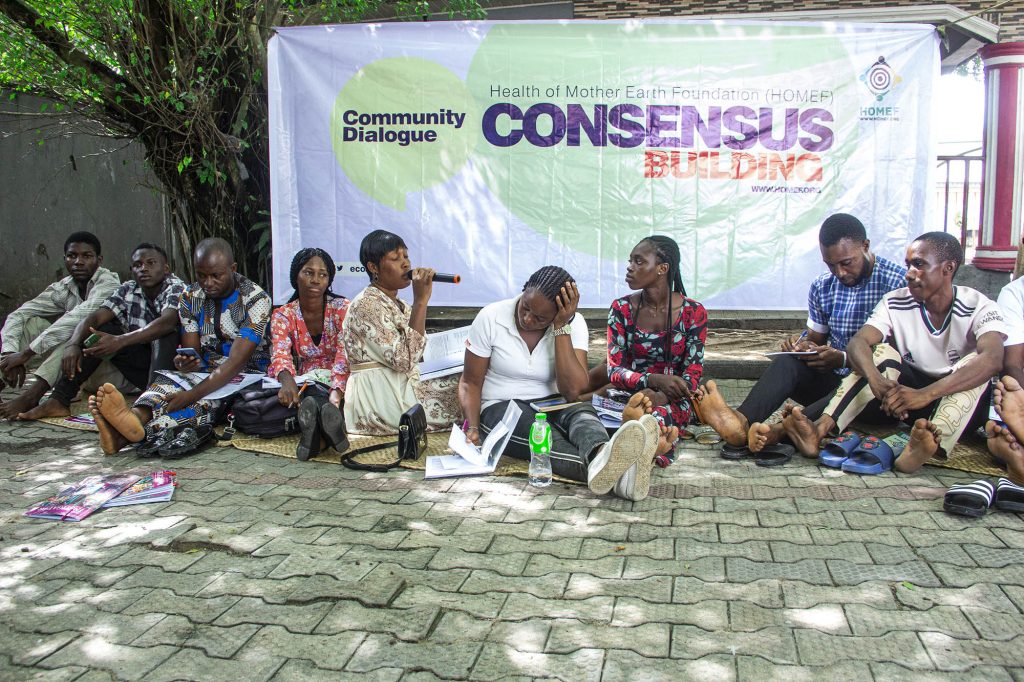
This session was held in Bayelsa State and as usual was set in a tales-by-moonlight setting – where participants sat on mats around the wisdom holder. Apart from being an opportunity for participants to glean learnings from years of experience of Mr. Alagoa and pick lessons to adapt to the present world on best practices in monitoring and using the reports for strategic advocacy, this session was also an opportunity for participants to interrogate the linkages between monitoring, traditional knowledge and how these can help to pilot the just energy transition the world so desperately needs.
During the session, Mr. Alagoa took time to share his experiences in the field including the challenges of restrictions from entering spill sites by the military and the companies involved in cases of pollution and how he was able to navigate all of these and still deliver his services.
He noted key points that helped him in successful monitoring, reporting and advocacy to include:
- The importance of truthfulness in the process of reporting – stating that in matters where the evidence of monitoring is brought to the court, evidence gathered in lies and cover up stand the chance of jeopardizing a case for the community people.
- Timing – stating how quick response time to cases of pollution is essential to avoid cover ups by government or colluding companies. Also, that responding in time, especially in the early hours of the mornings (in cases where the event happened overnight) allows the monitor to sneak in, gather his evidence before other interested parties (some of which are not usually nice) realize.
- The importance of giving your evidence a voice – sharing the report made from evidence gathered to enable a wider audience to be aware of and follow the situation.
- The need to develop the skills for community entry and engagement.
- The place and importance of having the right tools and equipment during monitoring, including having spares and duplicates.
In proceeding with the session, he shared some of the survival skills which helped him to include:
- Having people (reputable and trusted people including other activists, monitors and even the media) to be aware of your whereabout – adding that these people are the ones who will voice out in cases where a monitor is abducted in attempts to silence the report.
- The importance of not over-socializing with and accepting gifts from the community people as this may be a risk factor to the monitor.
He also shared on the place of evidence-based advocacy, stating how evidence cannot be denied. In connecting how monitoring and advocacy can help push for just energy transition (JET), Mr. Alagoa first spoke about the need to make the process of the transition inclusive, stating that presently, community people are not aware of the intricacies of the JET, what the government is doing and their role in the whole process. He reminded the participants how our traditional norms and cultures in the past helped in conservation and preservation and encouraged a return to some of those norms, like the fishing festivals, forest fallows etc.
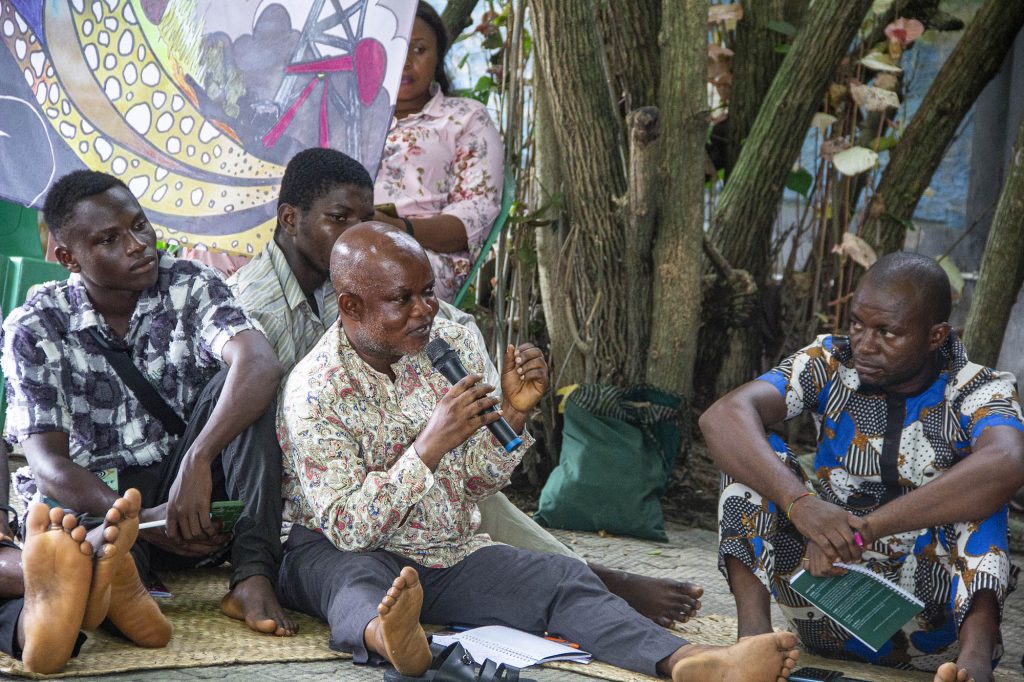
After a session of questions and answers from the participants, he ended the event by sharing how his hopes for a better Niger Delta look bleak presently, adding that the youths staying resilient, demanding accountability from the leaders, arming themselves with knowledge and challenging the status quo is the only way there could be a better future for the region. He encouraged the participants to not loose hope but rather let the state of the region stir them up to action as they commit to being vanguards and sentinels of the Niger Delta region.
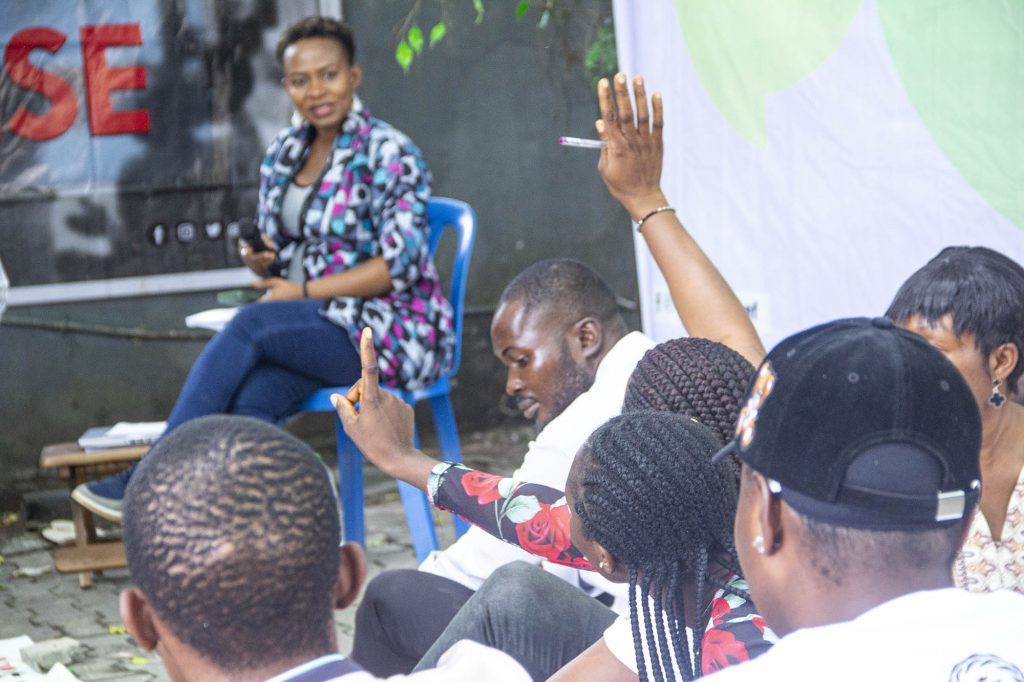
Apart from the students of the Niger Delta University who were parts of the participants for this session of our LftW, the event was graced with the presence of the Deputy Vice Chancellor of the university alongside the Head of Department of Environmental Studies – both lecturers shared their joy in coming to sit and learn from the wisdom holder. The participants (made of young people from three Niger Delta states; Rivers, Delta and Bayelsa) pledged to carry on the good works of Mr. Alagoa in monitoring, reporting and advocacy in the region.
